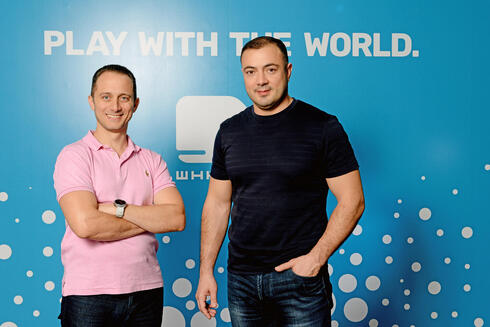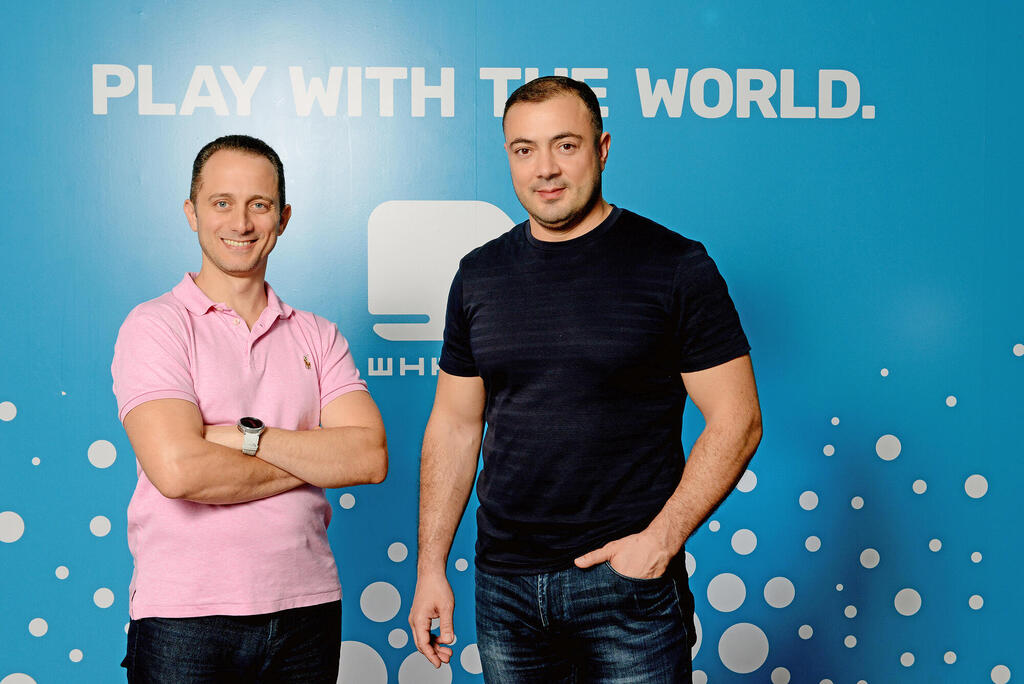
Plarium co-founder strikes big again with gaming startup Whaleapp
After the $500 million sale of Plarium to Australian company Aristocrat, Ilya Turpiashvili founded Whaleapp in 2018, raising approximately $50 million to date and generating $80 million in revenue from mobile games
One of the most remarkable success stories in the Israeli gaming industry was the sale of Plarium to Australian company Aristocrat for approximately half a billion dollars in 2017. This sale raised many eyebrows due to the hefty price paid by the Australian company. However, today, Plarium is recognized as one of the major triumphs in the gaming field, generating annual sales of around one billion dollars. Plarium was founded by two sets of brothers: Avi and Gabi Shalel, and Haim and Ilya Turpiashvili. After the sale, the founders went their separate ways, with only Haim remaining in Plarium until recently.
Approximately a year after the sale, Ilya Turpiashvili founded a company called Whaleapp, which is headquartered in Herzliya and currently employs over 200 people, with the majority based in Ukraine. The CEO of Whaleapp is Lev Metchnik, who co-founded the company with Turpiashvili. Ilya is the main shareholder and the driving force behind the company's products.
"When we sold Plarium, I knew that gaming was my true passion,” Turpiashvili told Calcalist. “A year after leaving Plarium, I established the new company. I wanted to build a successful mobile game company. Mobile is now the primary platform. I aimed to assemble a strong team without poaching employees from Plarium. I could have done so, but I chose not to disrupt their work."
The gaming market in which Whaleapp operates differs from Plarium's original focus. Turpiashvili explained that the cost of acquiring users has significantly increased, while marketing quality has decreased due to Apple's privacy restrictions. The games themselves also must be more sophisticated, immersive, and optimized for mobile platforms.
To date, Whaleapp has raised approximately $50 million, with investors including Israeli gaming fund vgames and investment fund Griffin Gaming Partners, which previously invested in Israeli company Overwolf. Whaleapp has achieved revenues of around $80 million, with its leading games being Blitz: Rise of Heroes, Hidden Hotel: Miami Mystery, and Family Zoo, a game developed by Whaleapp and marketed by Plarium.
Initially, the company developed a wide range of casual games, aiming to identify those with broad appeal. Whaleapp faced a challenging period when the war broke out in Ukraine, where most of its employees were located. "The company employs 200 people, with the headquarters and a few development staff in our home country,” said Turpiashvili. “Most of our employees used to be in Ukraine, and now they are spread worldwide. When the war erupted, it was a distressing time. We were deeply concerned about the well-being of our employees in Kiev and surrounding cities. Fortunately, everyone was safe. Our priority was ensuring their welfare. Initially, it was difficult as our dedicated employees worked even amid missile attacks."
Like many technology and gaming companies, Whaleapp has embraced the AI revolution. "We have leveraged AI to enhance our work systems, improving efficiency in various departments." In recent years, following the disruption caused by the Covid-19 pandemic, the company realized the need to reevaluate expenses and income. "In 2021, despite the economic challenges, we managed to retain our workforce due to easy access to funding,” said Turpiashvili. “However, in 2023, we face increased costs and difficulties in raising funds. As a result, we have reduced expenses for long-term investments, downsizing the workforce and focusing primarily on our core projects. Additionally, the efficiency of our systems has been enhanced through the use of AI."














